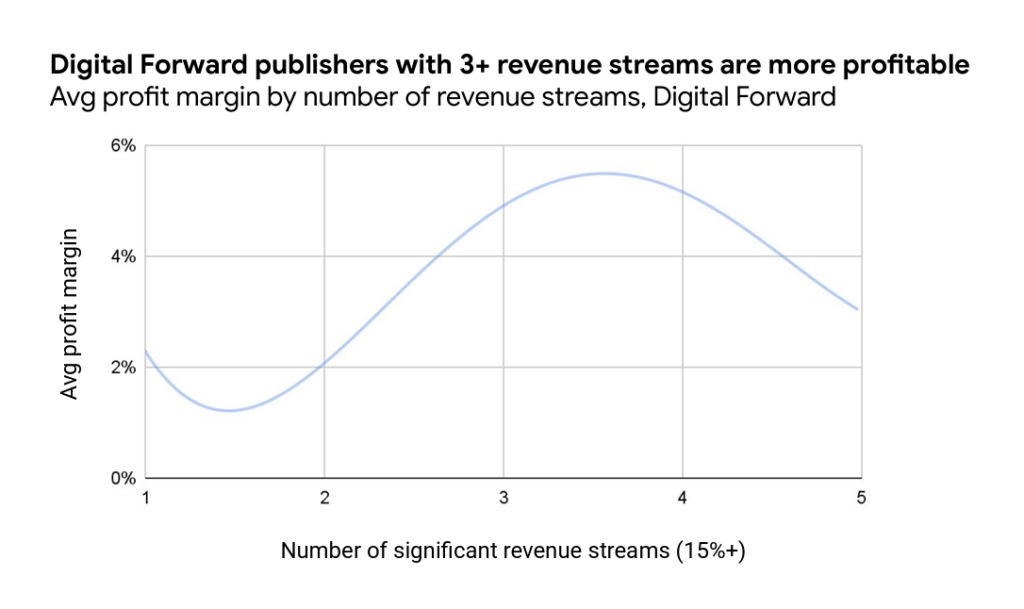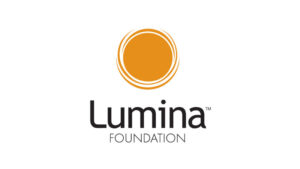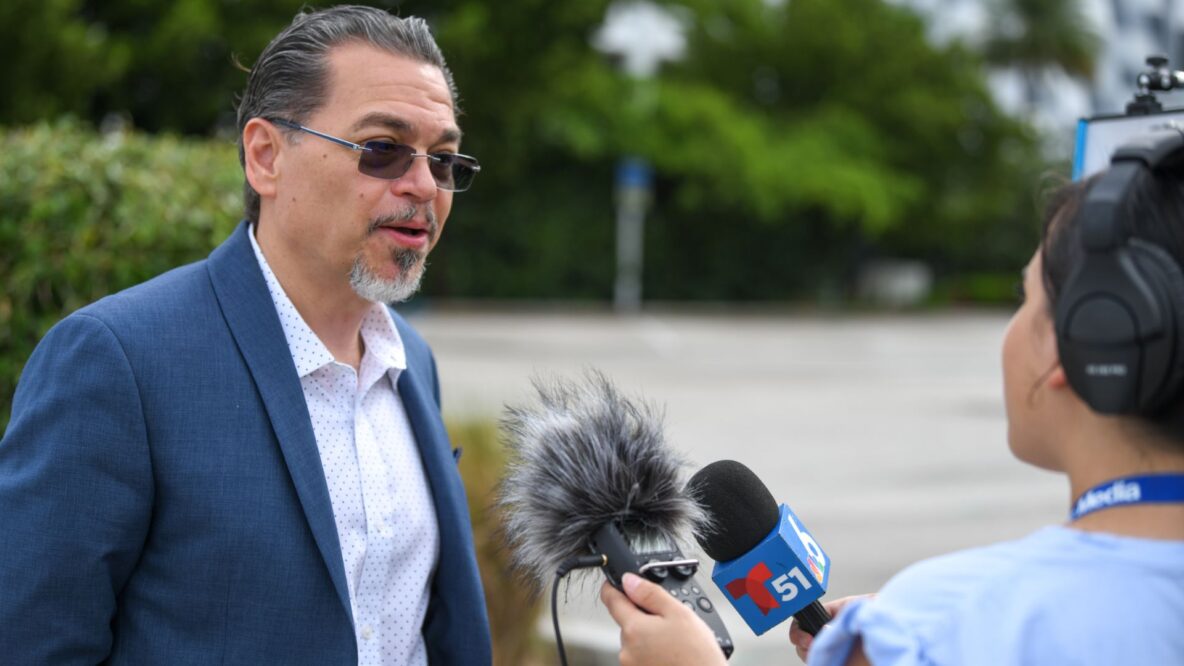
In its Local News Strategic Plan, MacArthur Foundation reimagined LION Publishers’ graphic to explain what it takes for a local newsroom to become sustainable.
Note: This piece is part of a series on how Press Forward’s funder coalition is investing according to the initiative’s four investment priorities: local news sustainability, equity, infrastructure and public policy. Our first piece covered infrastructure, our second one covered policy and this one puts the focus on sustainability and the importance of independent local news outlets becoming financially viable for the long term.
It’s true that all independent local newsrooms need money to survive, and the influx of philanthropy from Press Forward, its aligned funders and local chapters around the country is making a difference. But grant money alone does not lead to long-term sustainability, particularly in a field that has been starved of resources over the past half-century. Newsrooms also need to focus on their operations and staff, develop and manage multiple revenue streams, and make sure their journalism is having an impact in their community to become truly sustainable.
Back in 2021, the folks at Local Independent Online News (LION) Publishers were developing a startup lab for newsrooms to help them find revenue streams to become more sustainable. What they learned was that money wasn’t the only issue. When interviewing publishers, LION’s Lisa Heyamoto said that “they had never been asked about their news business so holistically or in such detail. It brought up their profound passion for journalism and community but also a deep well of anxiety and burnout.”
Some didn’t even have profit and loss statements. LION realized that there were foundational issues that publishers needed to work out, beyond just the business model. They came up with the idea that sustainability required operational resilience, financial health and journalistic impact. If one of these areas was lacking, the whole thing could fall apart. LION redesigned its support programs to address all three areas, and many funders, including Knight Foundation, MacArthur Foundation and Press Forward, have used this definition of sustainability as a guiding light.
In 2023, LION updated its sustainability framework with a maturity model, outlining the stages that publishers go through to get to sustainability — from preparation to building to maintaining and growing. Knight went even further, measuring progress toward sustainability among newsrooms served by its capacity-building grantees, and learning that “targeted interventions with clear goals … yield the most direct short-term and long-term impact with respect to sustainability.”

A recent global report from FT Strategies and Google News Initiative called News Sustainability Project 2025 found that in general, digital publishers are moving away from advertising toward reader revenues, and that publishers with at least three significant revenue streams have higher profit margins than those with fewer revenue streams (see chart above).
Press Forward’s overarching goal is to catalyze transformation in the media landscape in America, in part by helping local newsrooms that have the trust of their communities become sustainable in the long term. All the Press Forward pillars contribute to sustainability: supportive infrastructure and public policy, and equity and diversity of thought are foundational to make local news resilient and impactful.
To better understand how funders support sustainability in local newsrooms, we talked to three funders to learn more about their philosophy for funding — and some recent examples of investments they’ve made.
Tracy Baim, Executive Director, Press Forward Chicago
 Press Forward Chicago launched in November 2023 with 10 funders committing to invest $10 million to revitalize local news.
Press Forward Chicago launched in November 2023 with 10 funders committing to invest $10 million to revitalize local news.
What is Press Forward Chicago’s philosophy in funding local news related to sustainability?
Press Forward Chicago is focused on more than just granting funds. By collaborating with key stakeholders, including other funders and experts, we assist newsroom leaders in exploring and experimenting with innovative approaches to ensure they achieve the long-term financial viability necessary to meet their communities’ information needs.
Our efforts include supporting capacity-building initiatives, facilitating shared services between media organizations, and providing training ranging from business skills to audience growth.
What are a few examples of recent investments you have made to improve sustainability in local news?

Staff at South Side Weekly, which received funding from Press Forward Chicago to deepen engagement with audiences by enhancing distribution infrastructure. Photo by Marc C. Monaghan
In 2024, in the first round of funding for Press Forward Chicago, we awarded more than $1.6 million to 13 local newsrooms, prioritizing smaller outlets with budgets under $2 million to help build their capacities.
These grants support:
- Developing scalable business models that ensure long-term sustainability.
- Closing coverage and representation gaps in marginalized communities.
- Enhancing civic participation through stronger community connections.
- Leveraging technology for effective news distribution and audience engagement.
In addition to funding, the grant recipients are part of a learning cohort overseen by Northwestern University’s Medill School, which will provide support and training on topics they express a need for.
In 2025, our funding will focus primarily on supporting shared services among newsrooms and expanding capacity-building grants. A comprehensive survey will inform the grant opportunities, as we seek input from more than 150 area media outlets.
Kevin Corcoran, Strategy Director, Lumina Foundation

Through Press Forward, Lumina Foundation has committed $10 million over five years to strengthen local news in Indiana.
What is Lumina Foundation’s philosophy in funding local news related to sustainability?
Sustainability is a popular term in philanthropy, but it’s often misunderstood. Many of us who emphasize its importance have never actually run an organization. Foundation program officers sometimes oversimplify the idea or treat sustainability as an expectation without offering much guidance on how to achieve it—often because they don’t know themselves.
Sustainability isn’t just about money. It’s about building strong organizations that can thrive beyond foundation support. And for philanthropy to make a lasting impact, we must invest not just in ideas, but in the people and systems that will carry them forward.
At Lumina Foundation, we’ve supported public and nonprofit news organizations for nearly 20 years. Without this funding, many newsrooms wouldn’t have the resources to cover critical issues like higher education and workforce training. These stories help the public understand both the challenges and opportunities students face. But no single foundation can carry this responsibility alone.
What are a few examples of recent investments you have made to improve sustainability in local news?
We helped transition The Hechinger Institute into The Hechinger Report, a nonprofit newsroom, by securing additional funders.

Capital B Gary, a news site funded by Lumina Foundation, has a feature called “Ask Capital B” as a Black news information help desk for readers
More recently, through Press Forward, we have invested in newsrooms such as Free Press Indiana, Mirror Indy, and Capital B Gary, among others. With backing from organizations like the American Journalism Project, these outlets are filling critical gaps in local news coverage.
At Lumina, we follow a leadership model of philanthropy. This means we don’t just write checks and hope for the best—we actively support and engage grantees through networking, technical assistance, and advocacy. We bring together other funders, support research that informs policy change, and help organizations develop the leadership and financial skills they need to survive long-term.
Sustainability isn’t just about financial stability—it’s about creating resilient, mission-driven newsrooms that can thrive over the long term. By learning from past successes, today’s media leaders can build a stronger future for local journalism.
Vidya Krishnamurthy, Chief Communications Officer and Senior Adviser to the President, William and Flora Hewlett Foundation

Hewlett Foundation committed in 2023 to invest $10 million in local news through Press Forward over the next five years.
What is Hewlett Foundation’s philosophy in funding local news related to sustainability?
First, it’s helpful to know that the Hewlett Foundation doesn’t have a formal journalism program, even though we have funded media organizations both from our Special Projects portfolio and from specific program areas for many decades.
We believe making progress on any issue requires that the public is both informed and engaged about the problems facing society and the possible solutions. And almost every one of our program areas has a theory of change that presumes a functioning information ecosystem.
But information ecosystems have been crumbling everywhere, with declines in trust, increases in polarization and shifts in user habits that have broken business models supporting news and information sources. Press Forward has been a welcome opportunity for us. We know local news outlets are trusted sources, and that finding more ways to support access to local news and information that is sustainable is critical.
For a philanthropy like ours, working across a diverse set of issue areas, partnering with other funders – especially ones with dedicated journalism initiatives – is a way to help support greater access to local news and information and ensure that local news organizations can experiment with ways to become sustainable – both individually and as a field – for the long term. It will be key for all of us – our grantees across issue areas, allies and those we disagree with – to find common ground and creative solutions to problems facing society.
What are a few examples of recent investments you have made to improve sustainability in local news?
The foundation’s support for the Press Forward Pooled Fund has been a key investment in this area. Approaching philanthropic efforts collaboratively is an important way in which we work, and investing in Press Forward’s funder-to-funder focus on local news has been a way that we, as a national funder, can help support and catalyze the work being led by local philanthropists, local news providers and local communities to create more sustainable news.
There’s so much more to do, but it has been a tremendous opportunity for learning and collaboration – and it’s remarkable to see such a wide range of local communities in 29 states become part of this initiative.
In addition, within a time-limited exploratory fund related to media and communications in our Special Projects portfolio, we also made grants to:
- American Journalism Project for general support for their work as a venture philanthropy investing in sustainable growth of local news.
- Tiny News Collective to research the advertising needs of small publishers so they can help people build sustainable news organizations that serve their communities.
- Free Press for conducting nonpartisan analysis and research in developing sustainable models for civic news.
- Institute for Nonprofit News, which strengthens and supports more than 400 independent news organizations, from rural local news outlets to ones focused on global issues.
****
Whether it’s through the Pooled Fund, Aligned Grantmaking or local chapters, Press Forward funders are investing in local news with long-term sustainability in mind. And that means more than money. Funders are providing resources, connections, shared services and other support, which are just as important for newsrooms to succeed beyond one round of funding.
Mark Glaser is a communications consultant for Press Forward, Knight Foundation and Tiny News Collective and was the founder and executive editor of MediaShift.org. He was formerly the director of business and program development for the New Mexico Local News Fund. He runs the Wind Power Media consultancy out of Santa Fe.

